A Practical Guide to Cargo Control with Ratchet Straps and Load Binders
From: Dynaline
Cargo control is one of the most important parts of safe transportation, yet it is often one of the most overlooked. Whether you are moving construction equipment, machinery, or smaller utility loads, the way you secure that cargo determines how safe and efficient your haul will be.
At Dynaline, we understand that the right tie-down equipment makes all the difference. Our selection of ratchet straps, load binders, and accessories is designed to help haulers, contractors, and operators keep their loads stable, compliant, and damage-free. This guide explains how both systems work, how they differ, and how to use them properly to achieve reliable cargo control.
Why Cargo Control Matters
Once a vehicle is in motion, gravity and inertia begin to work against you. A sudden turn, quick stop, or uneven road can cause unsecured cargo to shift or tip, creating safety hazards and potential damage. Regulations require that the combined Working Load Limit (WLL) of your tie-downs must equal at least half the weight of the cargo being hauled. But meeting the standard is only the beginning. Proper cargo control ensures stability through every mile of travel, keeps your equipment in top condition, and builds trust with every delivery.
Understanding the Difference Between Ratchet Straps and Load Binders
Although ratchet straps and load binders often appear in the same category, they serve different purposes. Each system is designed for specific types of cargo and uses distinct methods of securing it.
Ratchet Straps
Ratchet straps use heavy-duty polyester webbing combined with a built-in ratcheting mechanism to apply tension. They are ideal for medium-duty loads such as equipment, pallets, vehicles, or materials that could be scratched or dented by metal chains. The smooth, controlled tensioning mechanism prevents over-tightening and distributes pressure evenly across the load.
Because the ratchet is built directly into the strap, this system is quick to set up and easy to adjust. Straps come in a variety of widths and ratings, with most offering a Working Load Limit between 1,000 and 5,000 pounds depending on hardware and design.
To ensure long-term reliability, straps should always be inspected for fraying, cuts, or broken stitching. Storing them in a dry, shaded area helps prevent webbing degradation over time.
Load Binders
Load binders are used in combination with transport chains for heavy-duty cargo. The binder is a separate tool that applies leverage to tighten the chain around a load. This system is common in construction, heavy equipment hauling, and industrial transport, where strength and rigidity are critical.
There are two common styles of binders: ratchet binders, which tighten gradually through a screw mechanism for precise tension, and lever binders, which tighten more quickly using manual force. Both provide the secure grip necessary for large or irregularly shaped loads.
Chains and binders are typically rated much higher than straps, with Working Load Limits ranging from 5,000 to 15,000 pounds depending on the grade of chain used. Grade 70 or higher is recommended for most transport applications.
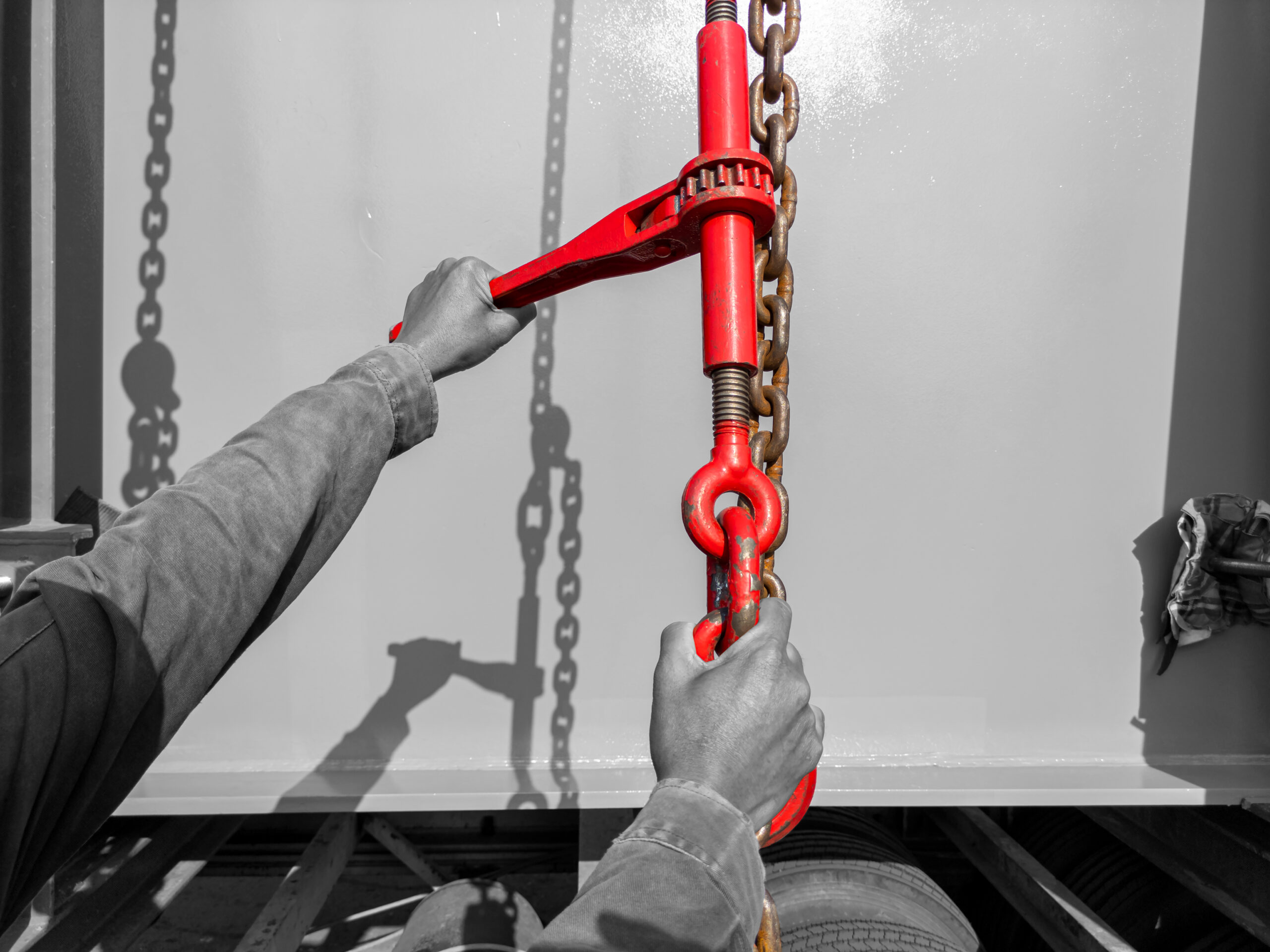
Using Each System Correctly
In most cases, professional haulers use both systems rather than choosing one over the other. Ratchet straps are best suited for lighter, delicate, or surface-sensitive loads, while chains and binders are used when the job demands maximum holding strength.
A well-balanced approach to cargo control might involve using ratchet straps to secure lighter components of a load and binders for the heavy base or core equipment. The key is to match each piece of equipment to the task it is designed for and to apply it correctly.
When securing cargo:
Inspect every strap, chain, hook, and anchor point before tightening.
Distribute weight evenly across the trailer or truck bed.
Apply even tension without over-tightening, which can damage cargo.
Position tie-downs at proper angles to resist forward, backward, and lateral movement.
Recheck tension after the first few miles of travel and during longer hauls.
These small habits reduce the risk of shifting loads, damaged gear, and unnecessary delays.
Maintenance and Longevity
Cargo control tools face constant stress and exposure to the elements. Keeping them in good condition ensures they perform when it matters most. Straps should be kept clean and dry, away from oil, chemicals, and direct sunlight. Chains and binders should be wiped down after use and stored off the ground to prevent rust. Applying a light lubricant to the moving parts of a binder keeps it working smoothly over time.
Replacing worn or damaged components is a critical safety practice. If a strap shows fraying or a chain has a bent link, it should be retired immediately. A single weak point can compromise the entire securement system.
The Dynaline Advantage
Dynaline’s cargo control products are designed for real-world use, built to handle tough conditions while maintaining precision and reliability. Our ratchet straps feature durable polyester webbing, reinforced stitching, and high-quality hardware for lasting performance. Our load binders and chains meet or exceed industry standards for strength, making them trusted tools for professional haulers and industrial users alike.
With a wide range of accessories, replacement parts, and related products, Dynaline helps you maintain a complete and dependable cargo control setup. Whether you are transporting machinery across town or
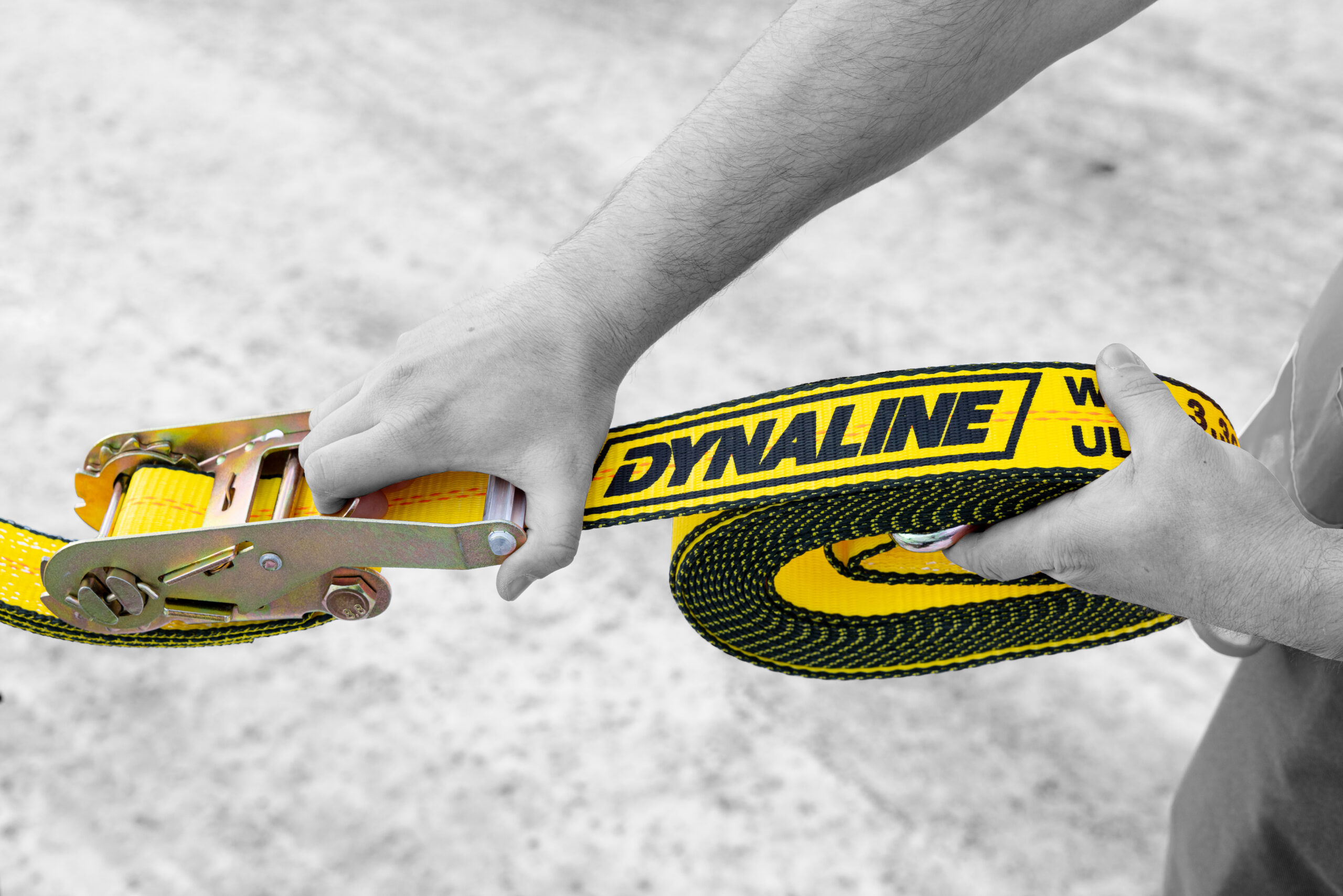
Final Thoughts
Cargo control is more than a checklist — it is a skill that reflects professionalism and safety. Understanding when to use ratchet straps and when to use chains and binders is part of doing the job right.
By taking the time to inspect, tension, and maintain your tie-down equipment properly, you protect your cargo, your vehicle, and everyone else on the road. Dynaline’s products are made to support that commitment, offering the durability and performance you need to get the job done safely and effectively.
👉 You can view Dynaline’s full selection of Cargo Control products here.
Did you find this post from us helpful? If so, share it with your peers:
RECENT POSTS FROM DYNALINE
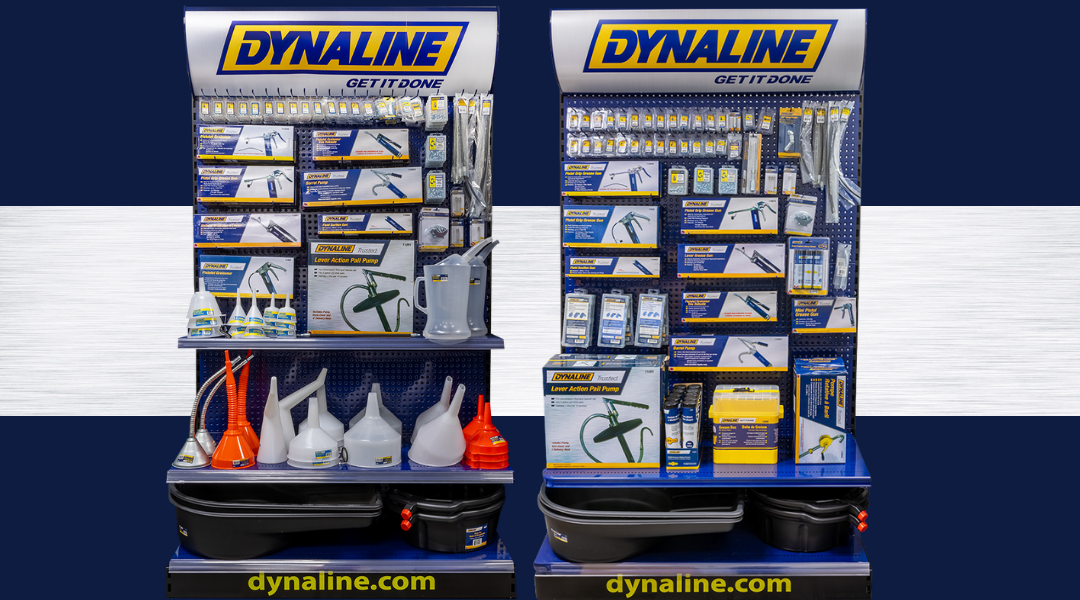
Which Grease Gun Do You Need? A Practical Buyer’s Guide
Grease guns play a critical role in equipment maintenance but choosing the right type matters. Learn the differences between lever, pistol grip, and mini grease guns so you can keep your equipment running smoothly and efficiently.
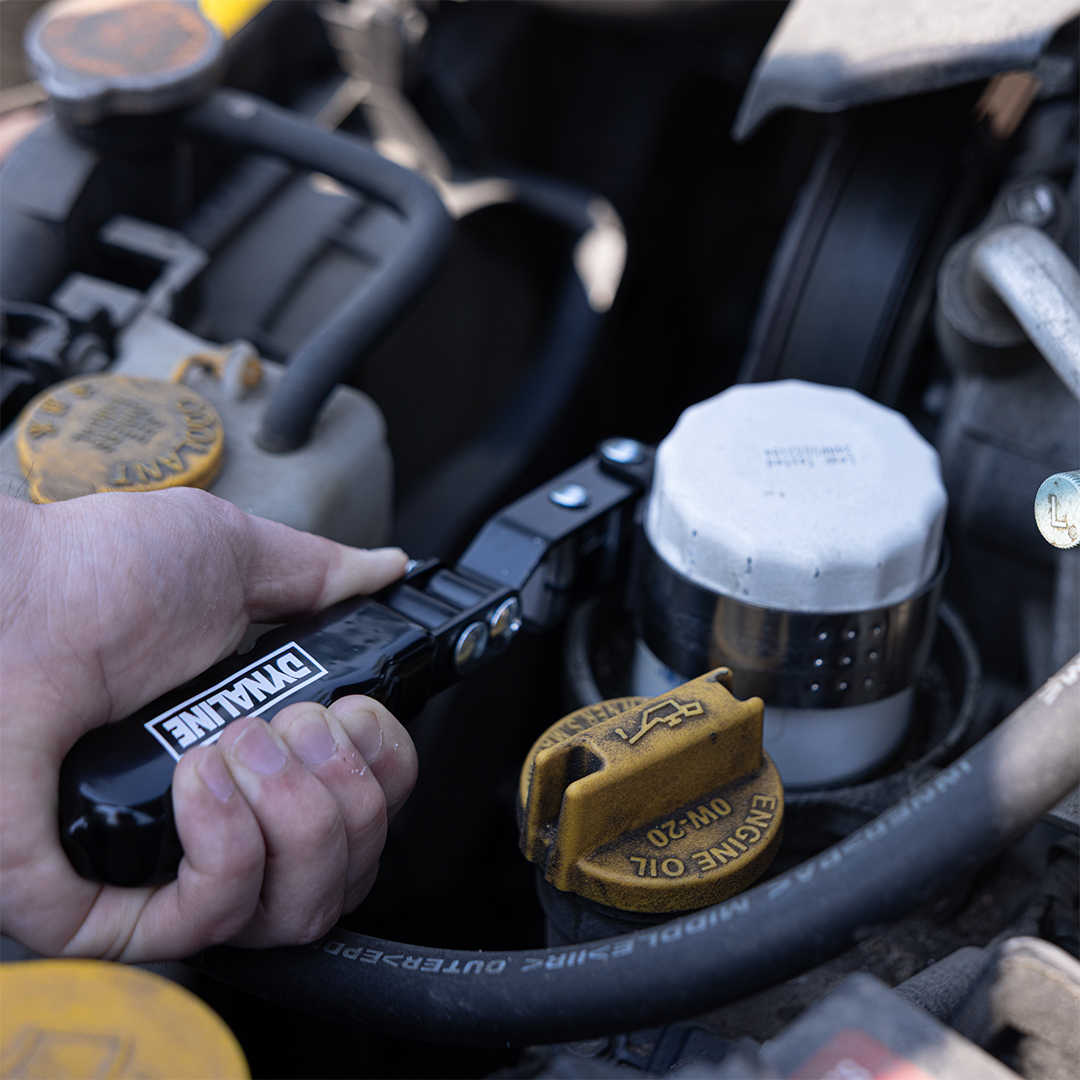
Swivel, Strap, Carbon Steel, and More: A Guide to Oil Filter Wrenches
Make oil changes easier with the right oil filter wrench. From swivel and carbon steel to nylon strap and adjustable pliers, discover the tools that save time, reduce effort, and prevent filter damage. Find the perfect wrench for every filter and workspace.
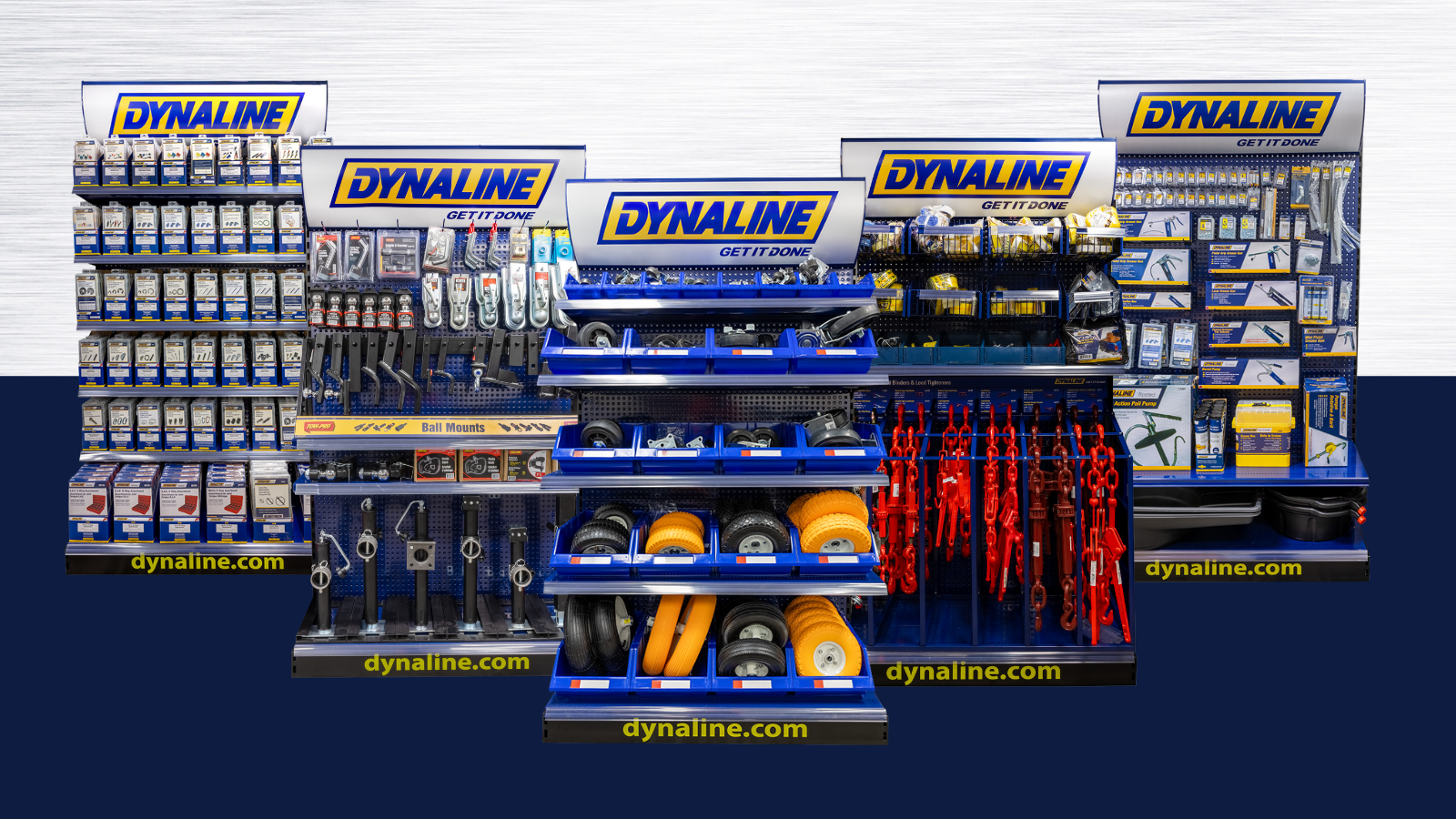
Eye-Catching Displays with Dynaline Gondolas
Discover Dynaline gondola displays built for product visibility and organization, featuring clear labels, researched product mixes, and customizable options for your store.
